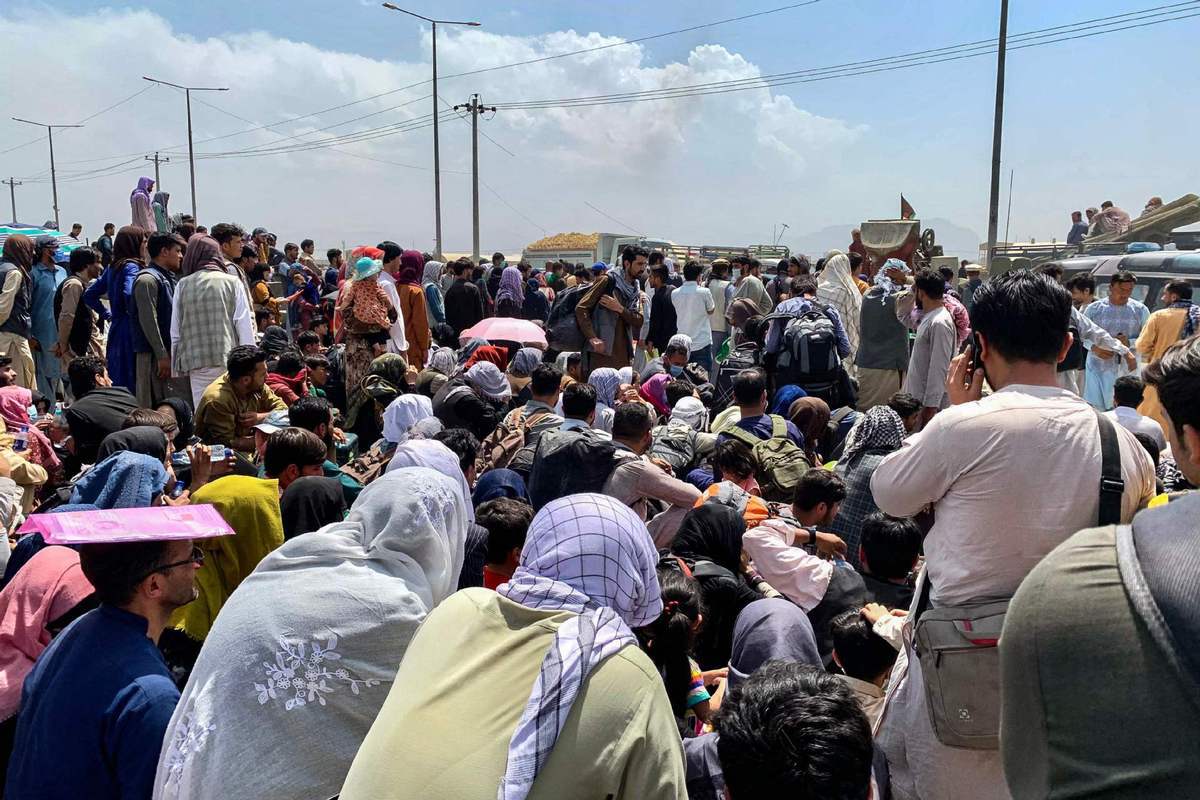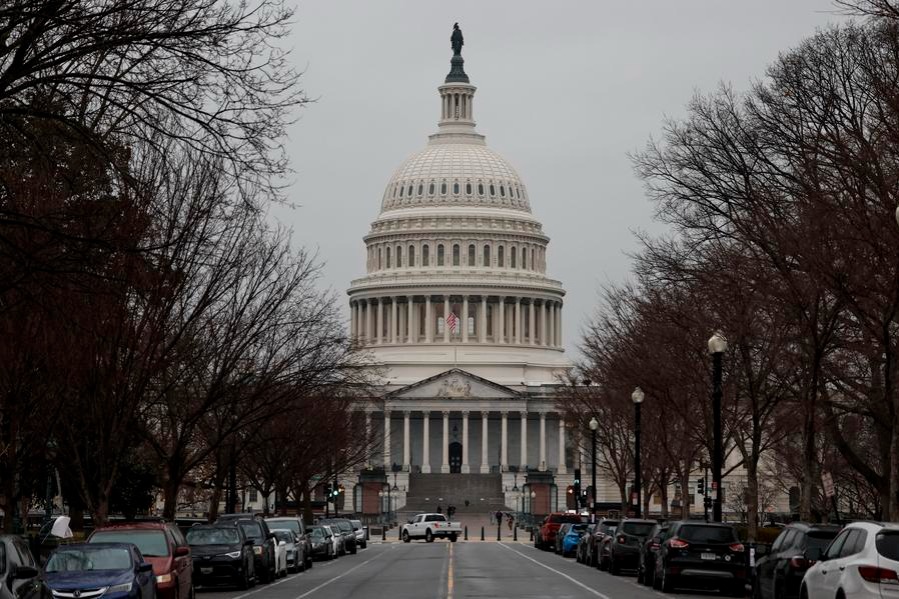Priority should be to restore peace in Afghanistan


The fact that the Taliban have seized power in Afghanistan even before the complete withdrawal of US troops should prompt China, as the largest neighbor of Afghanistan, to take necessary measures to reduce the security risks, especially along its borders.
The United States-led forces invaded Afghanistan almost 20 years ago, with the aim of decimating the Taliban and eliminating terrorism from the country, but pulled out of the country in utter haste without achieving any of their goals. Despite the chaos that the US troop withdrawal has caused in Afghanistan, US President Joe Biden, in a statement on Aug 16, defended his move as "the right decision" but admitted the power change in Afghanistan "did unfold more quickly than we had anticipated".
Biden also claimed the US' "mission in Afghanistan was never supposed to have been nation building" and its military mission in the coming days will consist of helping move Afghans eligible for "Special Immigration Visas". Which means the US will play the role of a passive onlooker after leaving Afghanistan in a mess.
The change in Afghanistan happened so fast that the international community couldn't reach a consensus on how to restore peace in the country, although neighboring countries remain alert and are preparing to deal with any eventuality that may arise if the security situation deteriorates in Afghanistan.
Tens of thousands of Afghans have fled to Iran and some Central Asian countries. Some will continue seeking passage to Europe. Although the refugee flow is unlikely to affect China, the country should provide humanitarian aid to the thousands of displaced Afghans.
The unfolding sociopolitical situation in Afghanistan suggests there could be a civil war between the Taliban and the Tajik warlords in the northern part of the country, as the latter have rejected the Taliban's rule. And if the civil war intensifies, the lives of the Chinese people who are still in Afghanistan and Chinese investments in the country will be at great risk.
If the Taliban cannot exercise effective control over the whole of Afghanistan, then the history of the 1990s could repeat itself and the "three evil forces" of terrorism, separatism and extremism are likely to spill to other countries. Given such a possibility, China should take precautionary measures to safeguard peace and development in the Xinjiang Uygur autonomous region, because it borders Afghanistan and has suffered the consequences of the "three evil forces".
Another big worry is drug production and trafficking in Afghanistan. Despite the presence of US forces in Afghanistan for almost 20 years, the country has become the world's largest producer and supplier of drugs, and if this trend continues, it would threaten regional security.
China is worried about the situation in Afghanistan and has adopted a clear stance on the Afghan issue. China respects Afghanistan's sovereignty and territorial integrity, and believes that the Afghan people have the right to decide their future course of action.
In the 1990s, China participated in the "6+2+1" talks-Afghanistan's six neighbors China, Iran, Pakistan, Tajikistan, Turkmenistan and Uzbekistan, plus the United States and Russia and, of course, Afghanistan. After that, the Shanghai Cooperation Organization, which was established in 2001, became a platform for the peaceful reconstruction of Afghanistan.
Russia hosted a special SCO meeting on Afghanistan in 2009. In 2012, the SCO included Afghanistan as an "observer state" and formed an SCO-Afghanistan Contact Group. It also held a meeting of foreign ministers on the Afghan issue in July, and said efforts should be made to deepen cooperation with Afghanistan to combat terrorism and crack down on drug trafficking.
China has held talks with other countries including Central Asian countries, the US, the European Union member states, Iran and Turkey in order to resolve the Afghan issue. On July 28, State Councilor and Foreign Minister Wang Yi met with a visiting Taliban delegation led by Taliban co-founder and political leader Mullah Abdul Ghani Baradar in Tianjin, and said the Taliban should work to achieve early, substantive results in the peace and reconciliation process, and independently "establish a broad and inclusive political structure that suits Afghanistan's national realities".
More important, Wang said, the Taliban should "make a clean break with all terrorist organizations including the ETIM(East Turkestan Islamic Movement) and resolutely and effectively combat them to remove obstacles, play a positive role and create enabling conditions for security, stability, development and cooperation in the region".
On Aug 16, China participated in the United Nations Security Council emergency meeting on Afghanistan and asked the Taliban to prevent the country from becoming a gathering place for terrorist and extremist forces again.
Afghanistan has long been the playing ground of big powers. It was the arena of the "Great Game" between the British and Russian empires for most of the 19th and the early 20th centuries. Afghanistan's troubles didn't end even in the latter half of the 20th century, as the Soviet Union sent troops into the country in 1979. And the US invaded the country in 2001.
Toward the end of the presence of US troops in Afghanistan, the US tried to keep the country away from the Belt and Road Initiative and ensure it did not establish strategic ties with either China or Russia. But it could not succeed in its designs.
As for China, it will help with Afghanistan's reconstruction and reconciliation as a good neighbor and friend.
The author is director of the Institute of Russian, East European and Central Asian Studies, the Chinese Academy of Social Sciences. The views don't necessarily reflect those of China Daily.

































